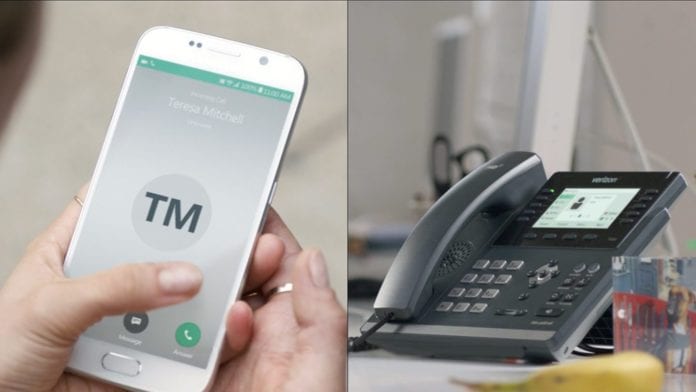Verizon Wireless hopes to win more small business customers with a new offer that lets those companies unify mobile and fixed-line service. The carrier said its new solution, OneTalk, is the first mobile solution that includes business calling features typically only available on traditional desk phones.
“We’re building on the voice over LTE in our wireless network,” said Catherine Sugarbroad, executive director for enterprise product management and pricing at Verizon. “What we wanted to do was really leverage that capability to create a mobile-first voice solution for business that was nationwide and really designed to give small businesses that unified communications capability, elegantly and at scale, for the first time.”
Sugarbroad said customers will be able to use their mobile devices for conferencing, holds, call transfers and auto receptionist functionality. They also will be able to use their mobile numbers on their desk phones.
Verizon Communications will market OneTalk through all wireless channels, including retail stores and agents. The service will be priced according to the number of lines a company activates.
“That desk phone basically looks under the hood to use like a mobile number,” said Sugarbroad. Recognizing that many small businesses are already mobile-first, Verizon is trying to offer a service that makes the desk phone an extension of the mobile device.
Small businesses often let employees use their personal phones for work, and Verizon hopes to address those customers by allowing them to use two mobile numbers on one device. The company number stays with the company if the employee leaves, and the personal number, of course, becomes disassociated from the corporate network.
Sugarbroad, a former managing director at Verizon Enterprise Solutions, said OneTalk is distinctly different from Verizon’s enterprise offerings, which are targeted at larger companies.
“A small business is not going to have the same kind of heterogeneous needs that a large business has,” said Sugarbroad. “A large business is going to have different needs at different locations … whereas a small business is really looking for something that’s super simple to set up, super simple to use, very easy to support and that’s what we’ve designed here.”

Verizon leverages VoLTE for new SMB solution
ABOUT AUTHOR
